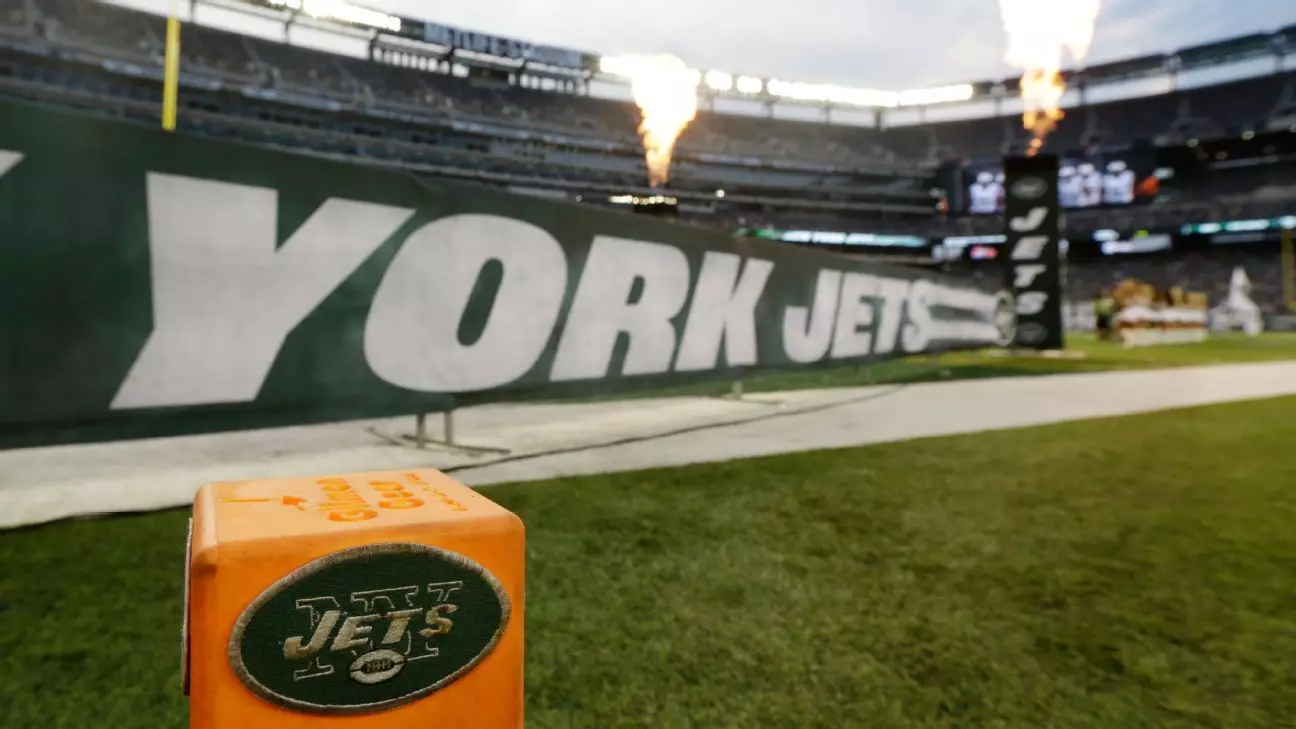In a bold move that reflects both a desire for change and hope for rejuvenation, the New York Jets have appointed Tanner Engstrand as their new offensive coordinator as of 2025. This decision marks yet another chapter in the franchise’s tumultuous quest for stability, particularly at the offensive helm. Engstrand comes with a rich background from his tenure with the Detroit Lions under head coach Dan Campbell, and he holds experience that could be vital for a struggling Jets offense. The announcement, first reported by Fox Sports and KPRC in Houston, signals the Jets’ willingness to take calculated risks in an environment typically marred by uncertainty.
Engstrand’s history with the Lions positions him well, fostering a level of familiarity with Jets head coach Aaron Glenn, also a former Lions assistant. Their collaborative experience in Detroit could potentially galvanize the Jets’ offense, which limped through the previous season with the 24th-ranked scoring output in the league. With Engstrand’s arrival, the anticipation surrounding the team’s offensive strategy is palpable; however, it also conveys the underlying risk of betting on untested leadership in a high-pressure environment.
Taking over as the Jets’ 11th playcaller in a mere 15 years, Engstrand steps into a role characterized by instability and high expectations. Historically, the Jets have faced challenges finding the right fit for their offensive needs, as reflected in their dismal ranking as the last in scoring offenses during this period. While the acquisition of a fresh talent could signal revitalization, it also brings to the forefront the harsh reality of past failures. The Jets seem trapped in a cyclical pattern of experimentation without long-term solutions.
Adding to the intrigue of this hire is the looming future of Aaron Rodgers. While the veteran quarterback navigates the decision of whether to return for what would be his 21st season, Engstrand’s potential impact on the offense might hinge significantly on Rodgers’ presence. Notably, the four-time MVP has had the privilege of working with a select number of play callers throughout his expansive career, creating an air of uncertainty surrounding who will lead the charge under center for the Jets.
Engstrand’s background provides an interesting mix of coaching pedigree and practical experience, albeit with no prior NFL playcalling track record. Having begun his journey under Jim Harbaugh at both the University of San Diego and the University of Michigan, Engstrand is well-versed in a program-driven approach to football. These experiences should facilitate his learning curve as he transitions to the NFL. However, the difference between college and professional ball is stark, and it remains to be seen how quickly he adapts.
His reputation from the college ranks and XFL could stir debates among fans and analysts alike about whether he’s the right fit to steer this beleaguered offense, particularly given that the talent around him may not fully compensate for a lack of high-level experience. With skilled players like Garrett Wilson and potentially Davante Adams (who may face salary cap-related turbulence), Engstrand is expected to leverage their abilities effectively. The uncertainty regarding Adams’ future, if realized, complicates matters further.
At the heart of the upcoming season lies the conundrum of the starting quarterback position—a pivotal factor for any offensive strategy’s success. If Aaron Rodgers decides not to return, the Jets may find themselves scrambling to secure a capable quarterback to realize Engstrand’s plans. Presently, they showcase backup Tyrod Taylor and rookie Jordan Travis, who is coming off a college injury. Neither option is particularly reassuring for fans hoping to see a dynamic offensive revival.
This situation highlights the challenges that Engstrand and Glenn face in revitalizing the franchise. The recruitment of potential quarterbacks may test the organization’s patience and resilience, with whispers suggesting that their primary candidate—a respected figure from the Los Angeles Rams—opted against the Jets due to the question marks surrounding the team’s chain of command.
In summation, Tanner Engstrand’s appointment as offensive coordinator revitalizes hopes for the Jets but comes with significant challenges. His collaborative history with Aaron Glenn could provide a solid foundation for rejuvenating an offense that has been hampered by inefficiency. Nevertheless, with the potential absence of Aaron Rodgers, the Jets risk stepping into another season marked by uncertainty.
Ultimately, 2025 holds the potential to be a transformative year, but the Jets must navigate through their historic struggle with leadership and quarterbacking talent if they hope to break free from the cycle of disappointment that has become synonymous with the franchise. For Jets fans, the watchword for the upcoming season is cautious optimism; only time will tell if this new journey will satisfy the yearning for competitive success.

Leave a Reply